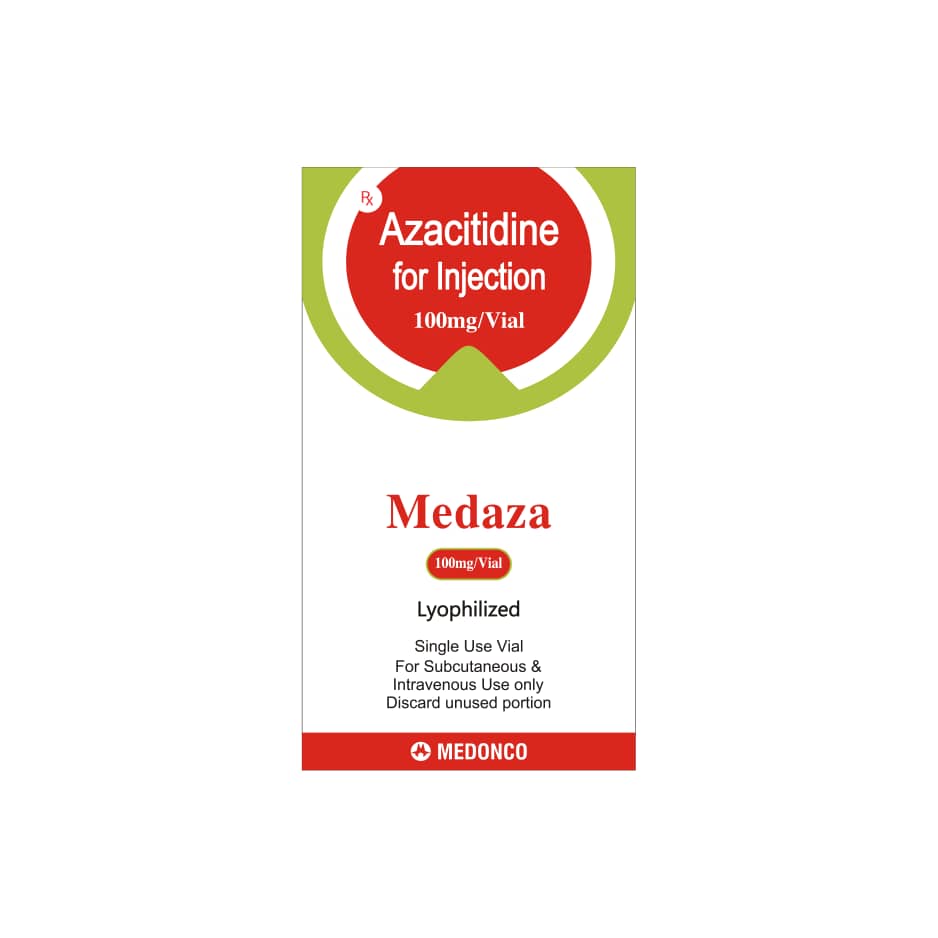
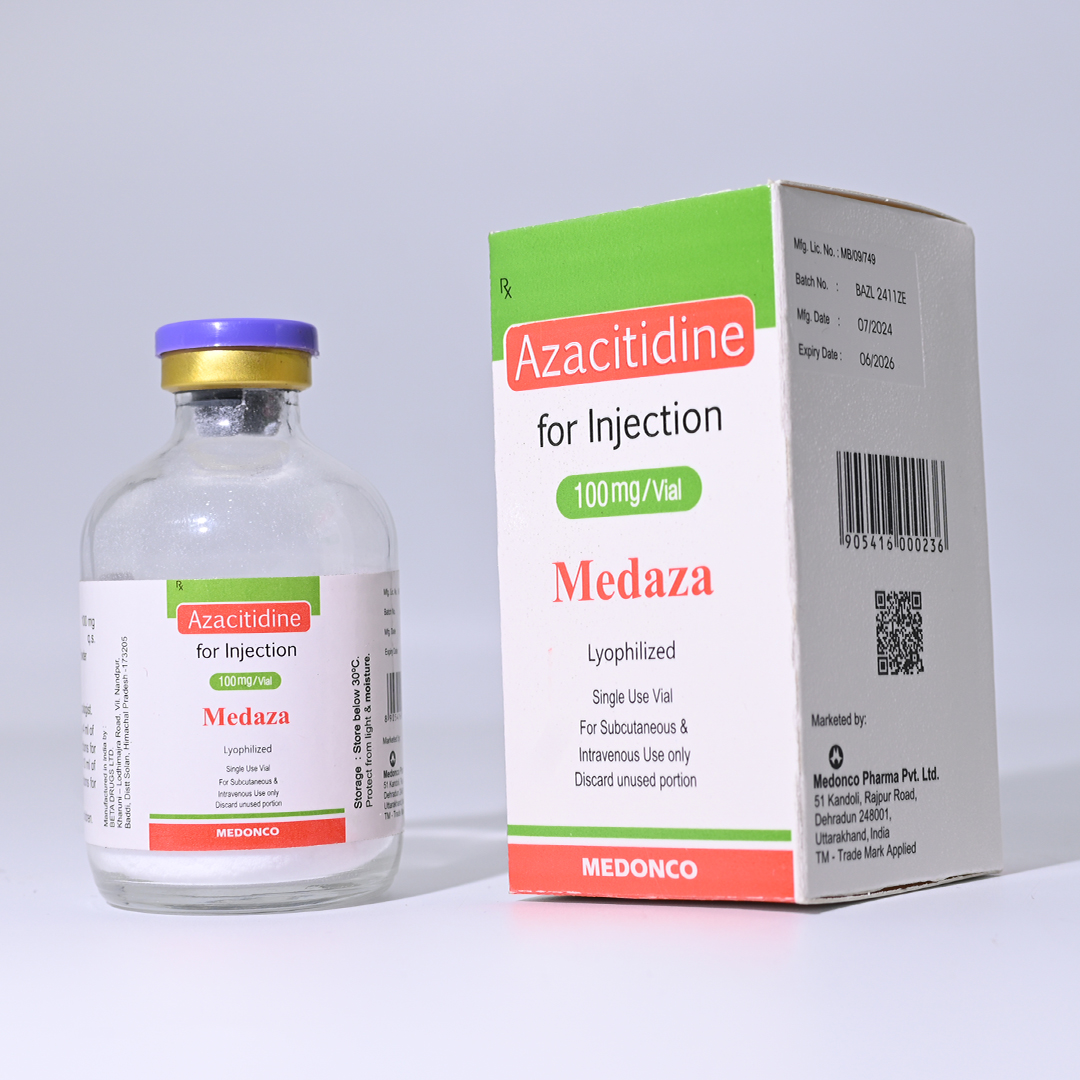
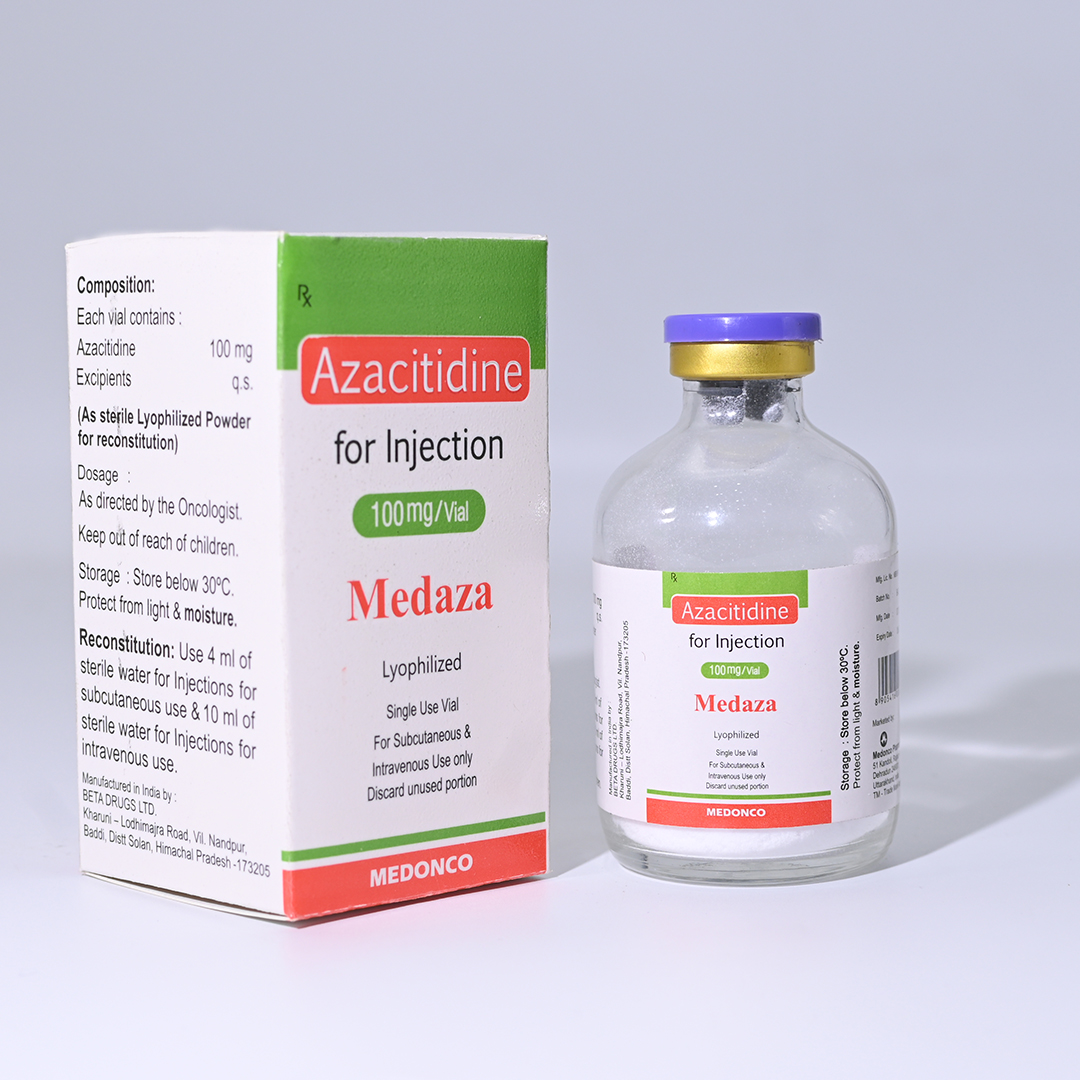
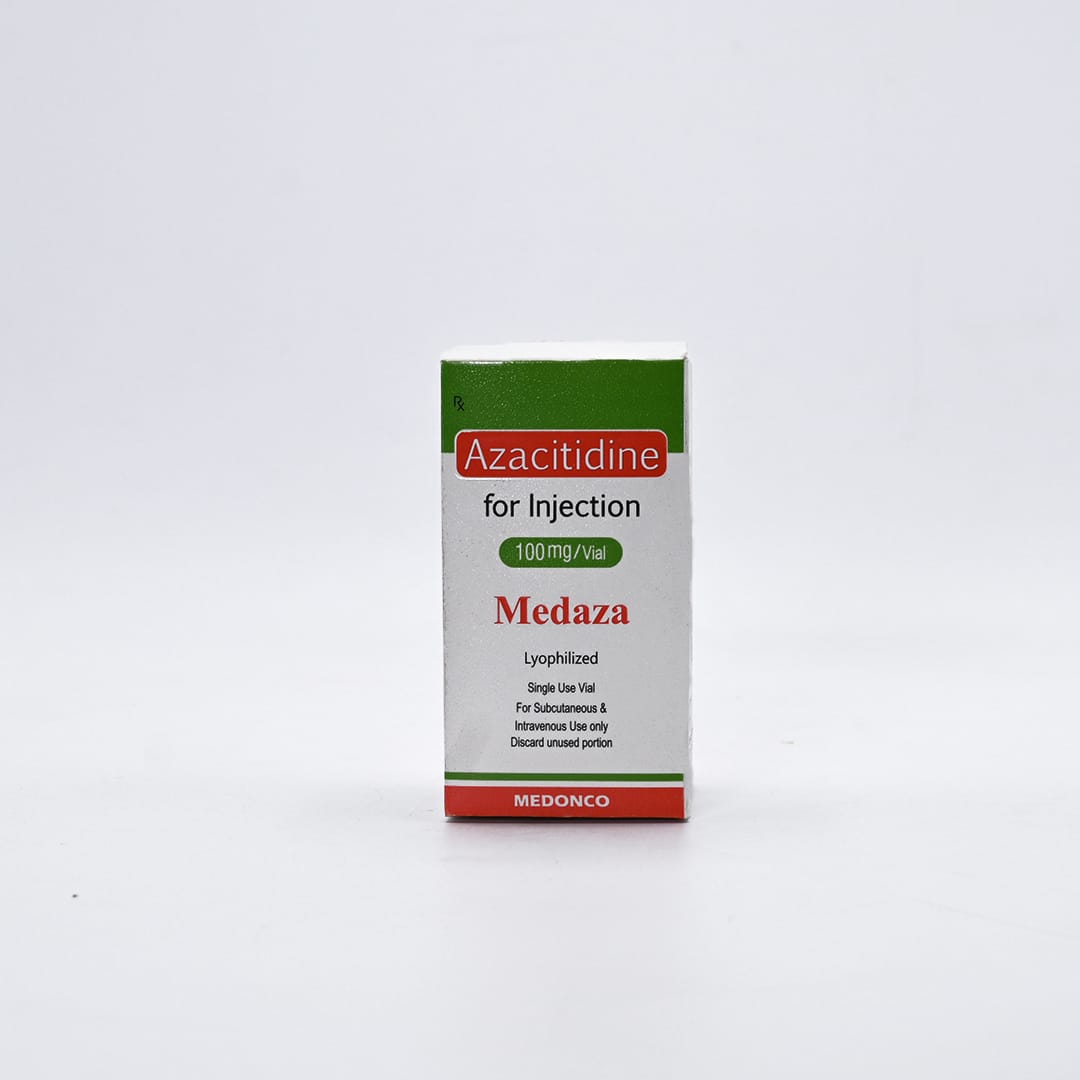

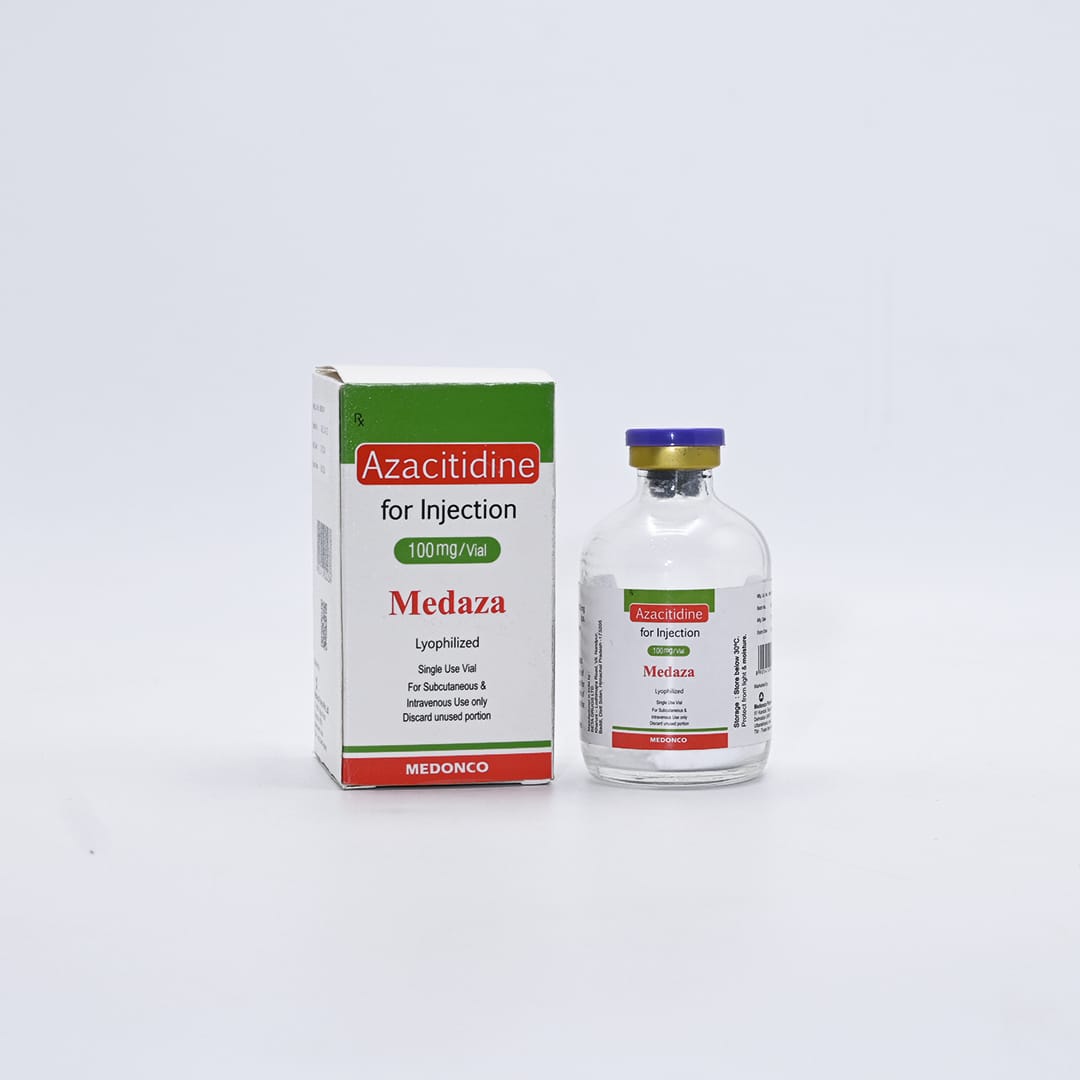
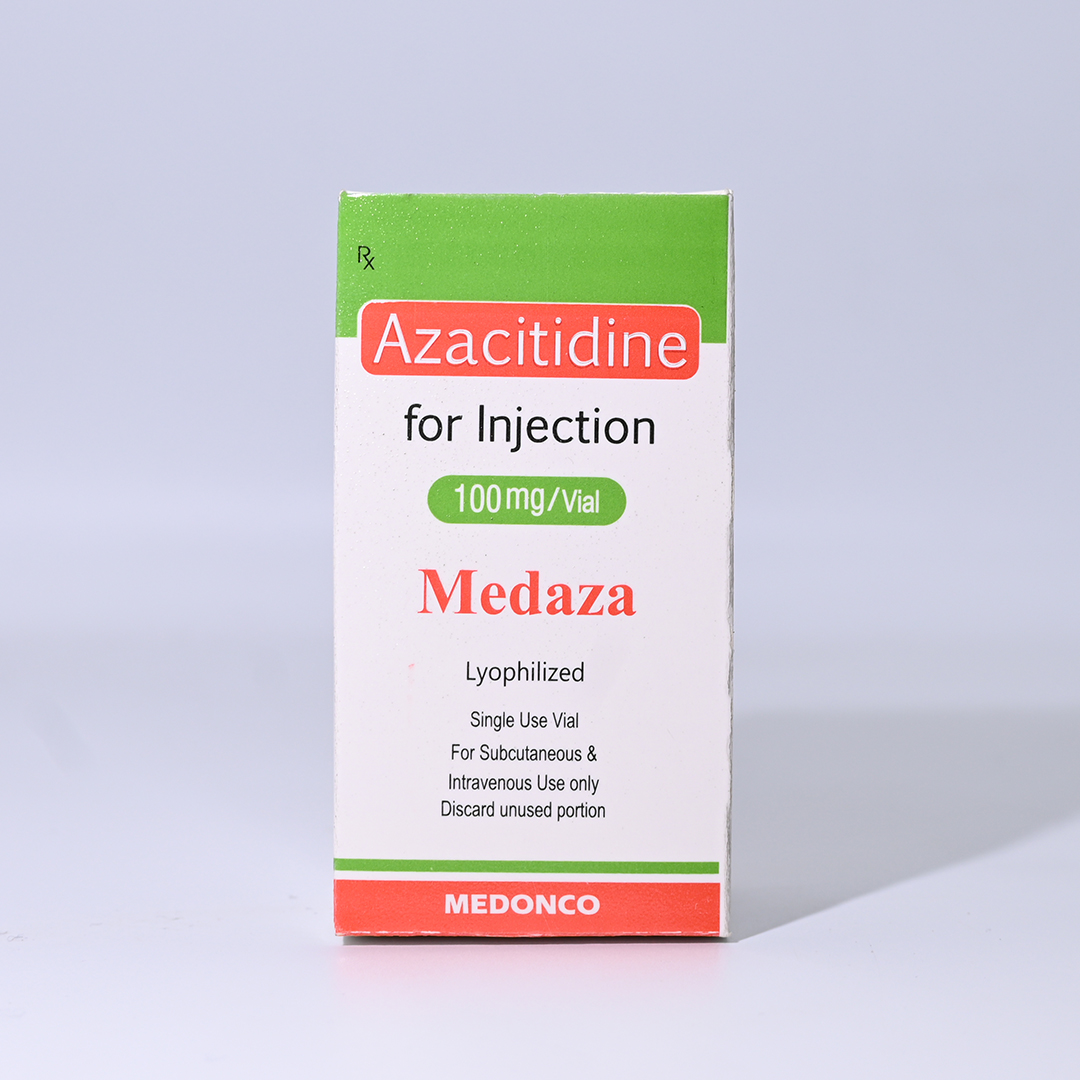
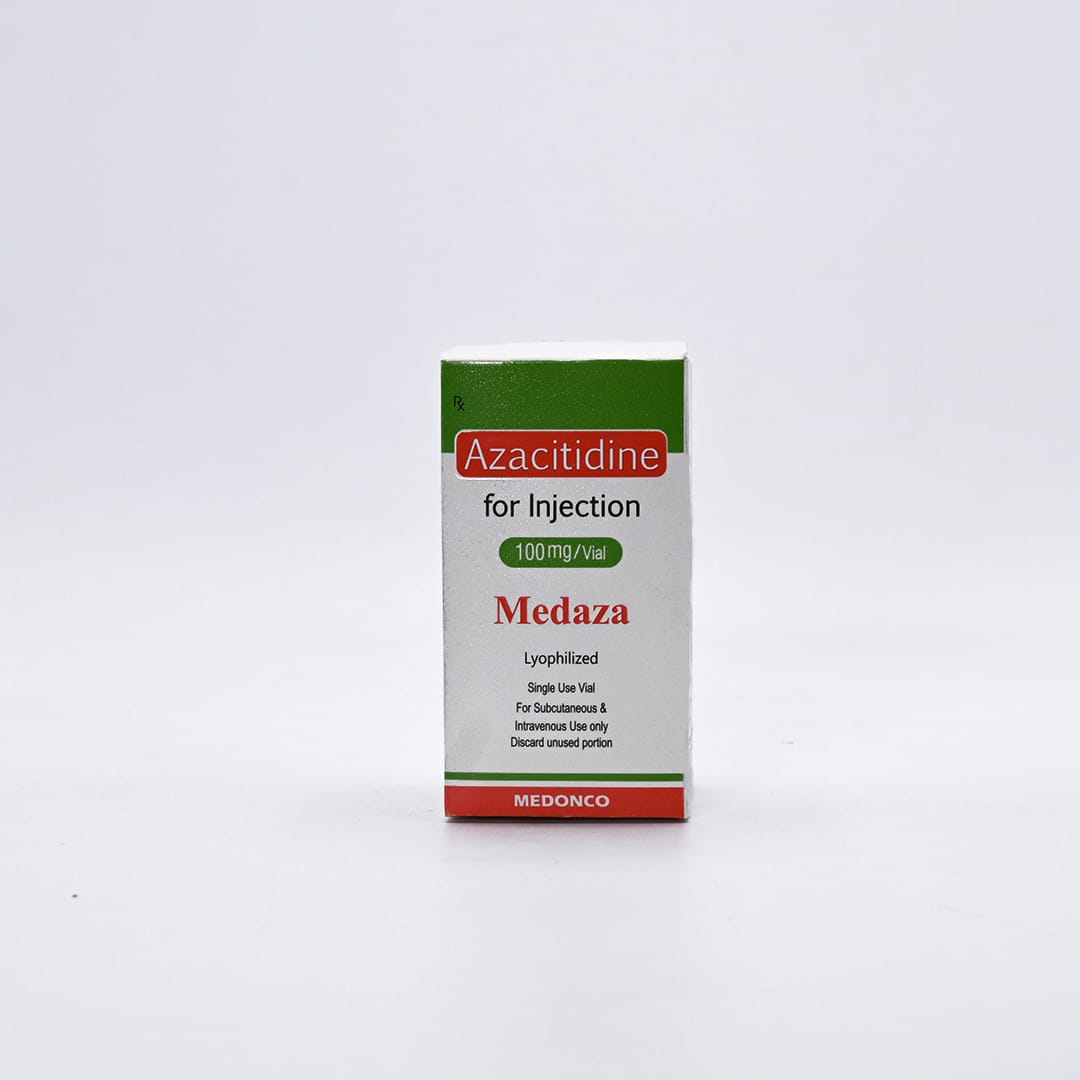
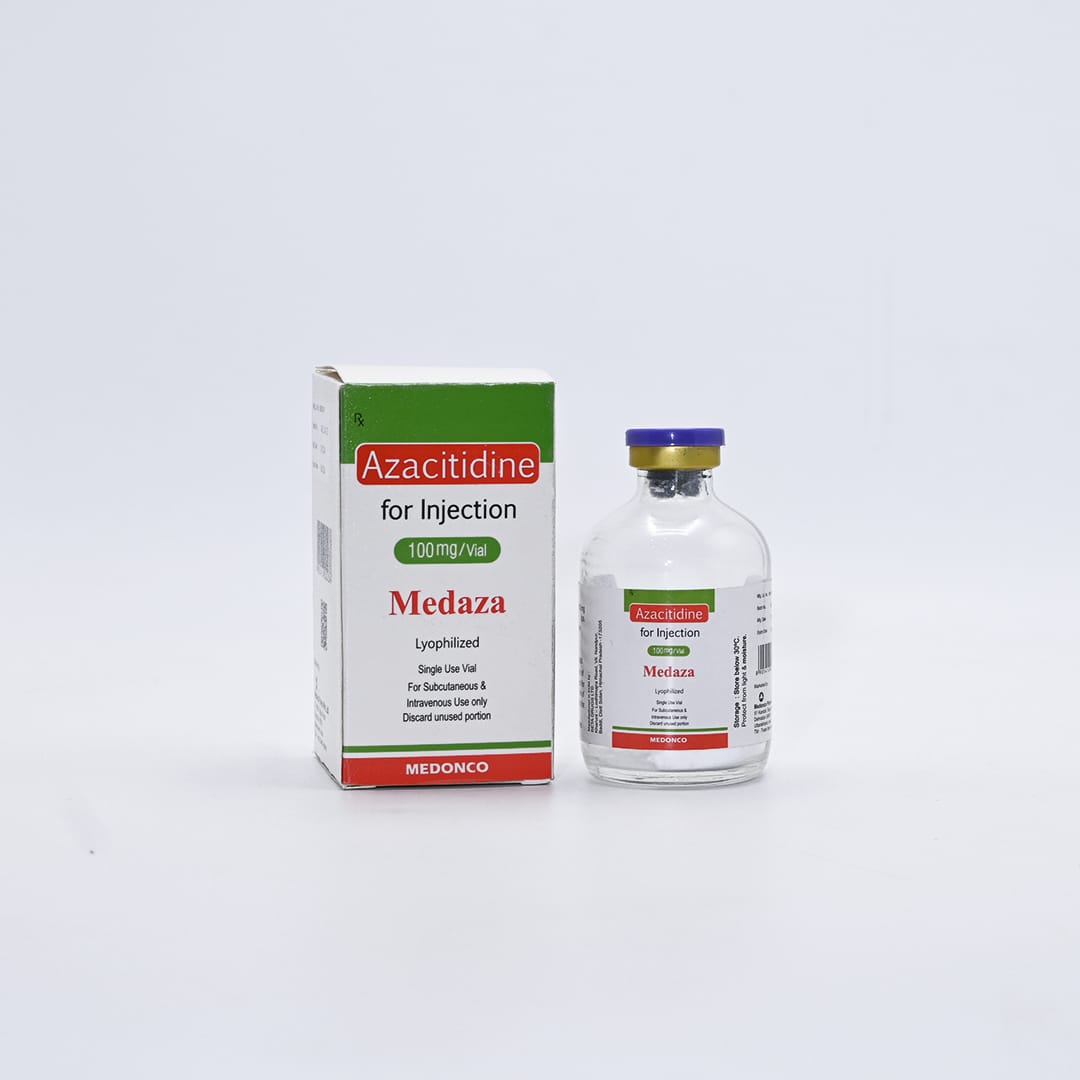
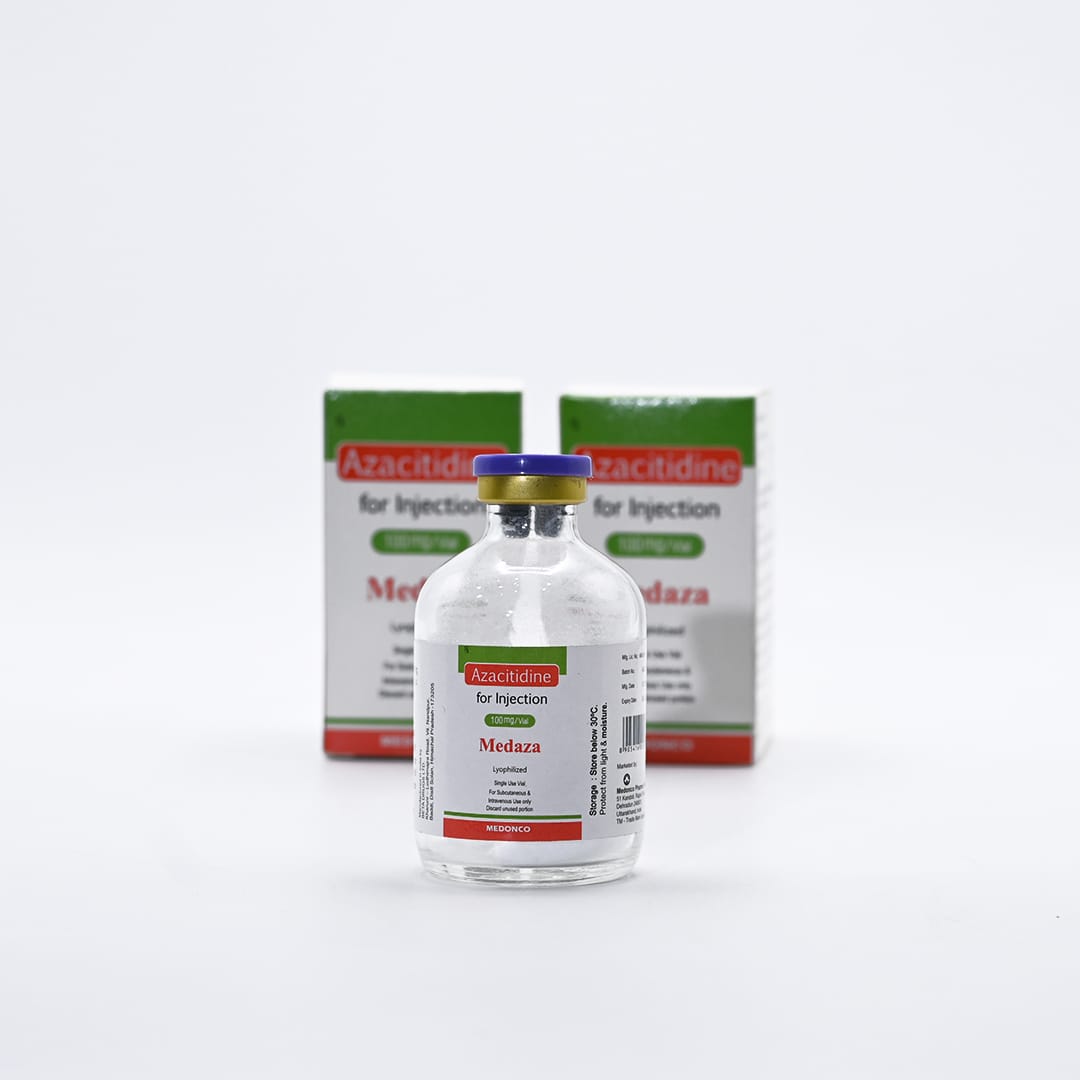
MEDAZA 100MG
Azacitidine 100mg Injection
Net Qty- 1 Injection
Shelf-Life- 2 Years
Medaza (Azacitidine 100mg) is an injectable Hypomethylating Agent (HMA) primarily used to treat certain types of blood cancers by restoring normal gene function and inhibiting abnormal cell growth.
USE
Medaza (Azacitidine 100mg) is primarily indicated for:
- Myelodysplastic Syndromes (MDS):
- Refractory anemia.
- Chronic myelomonocytic leukemia (CMML).
- Other MDS subtypes classified under the International Prognostic Scoring System (IPSS).
- Acute Myeloid Leukemia (AML):
- Particularly for patients with <30% blasts in bone marrow.
- Chronic Myelomonocytic Leukemia (CMML):
- For patients with significant Cytopenias or progression.
Mechanism
of Action
Medaza (Azacitidine 100mg) incorporates into RNA and DNA, disrupting abnormal cell proliferation and promoting cancer cell death.
- Hypomethylation: It inhibits DNA methyltransferase, leading to reactivation of tumor suppressor genes and cell cycle regulation.
- Cytotoxic Effect: At high doses, it incorporates into RNA/DNA, leading to apoptosis in rapidly dividing cells.
The dual action makes azacitidine particularly effective in managing MDS and AML.
Administration
Standard Dose:
- Subcutaneous (SC) or Intravenous (IV):
- 75 mg/m²/day for 7 days, repeated every 28 days.
- Dose can be increased to 100 mg/m²/day if tolerated and if clinically beneficial.
Preparation:
- The injection is typically reconstituted with sterile water for injection and should be used within the specified stability period.
- Administer subcutaneously in the abdomen, thigh, or arm, rotating sites to minimize skin irritation.
Treatment Duration:
- A minimum of 6 treatment cycles is recommended to assess effectiveness.
Common Side Effects
Most common side effects of Azacitidine
- Hematologic:
- Anemia, neutropenia, thrombocytopenia (monitor blood counts regularly).
- Gastrointestinal:
- Nausea, vomiting, diarrhea, or constipation.
- Injection Site Reactions:
- Redness, pain, or irritation.
- Fatigue:
- Common in most cancer treatments.
Severe or Rare Side Effects
- Infections: Due to myelosuppression, patients may be more susceptible to bacterial or fungal infections.
- Kidney Toxicity: Monitor renal function, especially in patients with pre-existing kidney issues.
- Liver Toxicity: Watch for signs of elevated liver enzymes or jaundice.
Monitoring and Precautions
Before Starting Treatment:
- Baseline blood counts, liver, and kidney function tests.
During Treatment:
- Monitor complete blood counts (CBC) frequently.
- Look for signs of infection, bleeding, or worsening anemia.
Contraception:
- Both male and female patients should use effective contraception during and after treatment due to potential harm to a fetus.
Drug Interactions
Live Vaccines:
- Avoid during Azacitidine treatment due to immunosuppression
Cytotoxic Agents:
- Caution with concomitant use, as it can exacerbate myelosuppression.
Special Considerations
Renal Impairment:
- Dose adjustments may be necessary.
Elderly Patients:
- Generally well-tolerated, but monitoring is crucial.
Pregnancy and Breastfeeding:
- Contraindicated due to teratogenic effects.
Clinical Effectiveness
Medaza (Azacitidine 100mg) has shown:
- Improved overall survival in high-risk MDS patients.
- Delayed progression to acute leukemia.
- Reduction in the need for transfusions in anemic patients.
Precautions
Patients taking sorafenib should be monitored for potential side effects, including:
- Liver function tests:
Risk of liver toxicity. - Heart function:
Possible cardiac issues like myocardial ischemia. - Skin reactions:
Severe dermatologic effects may occur.